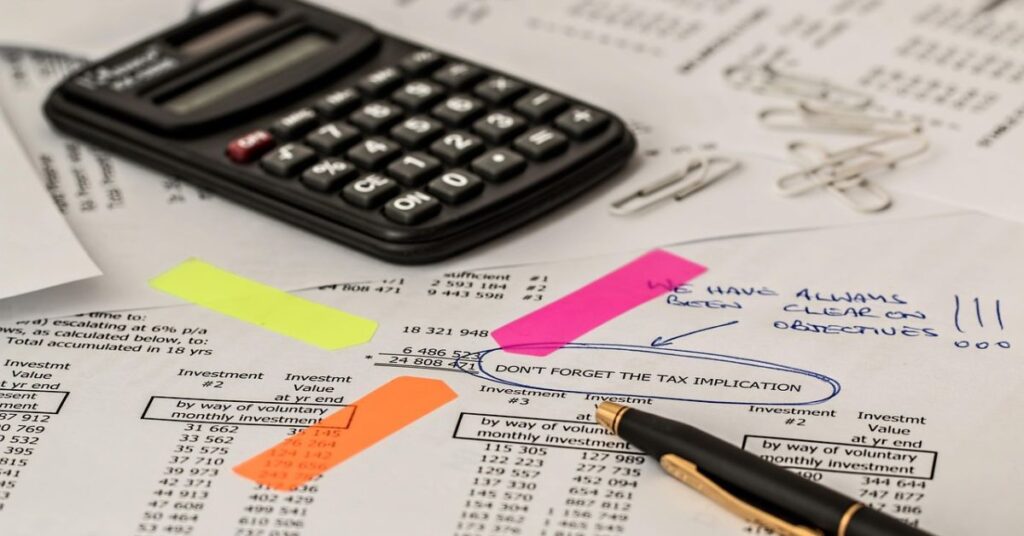When we discuss ‘loopholes’ for accessing superannuation early, it’s essential to understand that these aren’t secret tricks. Instead, they refer to specific, legally defined pathways allowed by the Australian Taxation Office (ATO) under certain circumstances. The ATO has strict rules about when you can access your super, as it’s primarily designed for retirement. However, there are legitimate reasons why someone might need to access these funds before they hit retirement age.
Understanding Loopholes to Access Super Within ATO Guidelines

When we discuss ‘loopholes’ for accessing superannuation early, it’s essential to understand that these aren’t secret tricks. Instead, they refer to specific, legally defined pathways allowed by the Australian Taxation Office (ATO) under certain circumstances. The ATO has strict rules about when you can access your super, as it’s primarily designed for retirement. However, there are legitimate reasons why someone might need to access these funds before they hit retirement age.
Think of it less like finding a hidden door and more like following a clearly marked, albeit sometimes complex, trail. These pathways are generally for situations where you’re facing genuine hardship, significant medical expenses, or specific life events.
Here are some of the main categories the ATO recognises:
- Financial Hardship: This usually involves being unable to meet immediate family living expenses. You typically need to have been receiving certain government benefits for at least six months.
- Compassionate Grounds: This covers things like needing funds for medical treatment or palliative care for yourself or a dependant, or to pay for essential modifications to your home or vehicle due to a severe disability.
- Severe Financial Hardship: A slightly different category, often involving being unable to pay a debt when it’s due, and facing bankruptcy or similar proceedings.
- Permanent Incapacity or Terminal Illness: Access is generally allowed if you’re unlikely to ever work again in a job you’re qualified for, or if you have a terminal medical condition.
It’s also worth noting that the First Home Super Saver Scheme (FHSS) allows you to use voluntary super contributions to buy your first home, and temporary residents can access their super when they leave Australia permanently. These are all planned government initiatives, not loopholes in the traditional sense.
The key takeaway is that any early access must align with the ATO’s specific criteria. Attempting to access super outside these approved channels can lead to significant tax penalties and legal trouble. It’s always best to be upfront and follow the official process.
It’s crucial to remember that even when you meet the criteria, the process can involve a fair bit of paperwork and waiting. Your super fund will also have its own procedures to follow once the ATO gives the green light.
Who Can Legally Use Loopholes to Access Super
It’s a common question: who actually gets to tap into their super early, and are there really ‘loopholes’ to do it legally? The short answer is, it’s not quite as simple as finding a secret back door. Accessing your super before you hit retirement age is generally pretty restricted, and for good reason – it’s meant to be there for when you’re older. However, the Australian Taxation Office (ATO) does allow for early release under specific, defined circumstances. These aren’t really ‘loopholes’ in the sneaky sense, but rather pathways designed for genuine need or specific life events.
Generally, you can only legally access your super when you meet a ‘condition of release’. For most people, this means reaching their preservation age (which depends on your birth date, typically between 55 and 60) and then retiring, or reaching age 65, regardless of whether you’re still working. But there are a few other specific situations where you might be able to get your hands on some of your super early, outside of these standard conditions.
Here are the main groups of people who might be able to access their super under specific ATO-approved conditions:
- First-Home Buyers: The First Home Super Saver (FHSS) Scheme is a big one. If you’re buying your first home, you can make voluntary contributions to your super, and then withdraw those contributions (plus earnings) to help with your deposit. It’s a planned way to use super savings for a major life goal.
- Individuals Facing Severe Financial Hardship: If you’re in a really tough spot financially and can’t meet your immediate family’s basic living needs, you might be able to apply for early release. This usually involves demonstrating you’ve received certain Centrelink payments for a significant period (like 6 months or more) and are struggling to make ends meet.
- People with Compassionate Grounds: This covers situations where you need to access super for medical treatment (for yourself or a dependant), palliative care, or to pay for necessary modifications to your home or vehicle due to a severe disability. It’s about genuine, urgent needs.
- Those with Terminal Illness or Permanent Incapacity: If you’re diagnosed with a terminal illness or become permanently unable to work, you can usually access your super as a lump sum. This is a difficult situation, and the rules are designed to provide financial support when it’s most needed.
- Temporary Residents Departing Australia: If you’ve worked in Australia on a temporary visa and are now leaving the country permanently, you can generally claim your super as a departing Australia superannuation payment (DASP). There are specific rules around this, and it’s not available if you’ve become an Australian permanent resident or citizen.
It’s really important to remember that these aren’t ways to just get cash out for a holiday or a new car. The ATO has strict criteria for each condition of release, and they’re designed to protect your retirement savings. Trying to access super outside these rules can lead to serious penalties.
It’s also worth noting that using a Self-Managed Super Fund (SMSF) to purchase property is sometimes mentioned, but this is a complex area. Typically, an SMSF can buy an investment property, but you generally can’t live in it yourself, and it’s a strategy best suited for experienced investors with significant super balances who understand the responsibilities involved.
Early Access for Financial Hardship and Medical Reasons
Sometimes life throws you a curveball, and you find yourself in a really tough spot financially. When that happens, the Australian Taxation Office (ATO) does allow for early access to your superannuation, but it’s not a free-for-all. There are specific conditions you need to meet, and it’s generally for genuine hardship or serious medical needs.
To access your super early due to financial hardship, you usually need to show that you’ve been receiving a government income support payment for at least six months. This isn’t just about being a bit short on cash; it’s for situations where you genuinely can’t meet immediate and reasonable family living expenses. Think of it as a last resort when other options have dried up.
Medical reasons are a bit different. This can include paying for expenses related to a life-threatening illness or injury, or to alleviate acute or chronic pain. It could also be for necessary medical treatment or to care for a dependent who is suffering from a life-threatening illness or injury. The key here is that the expense must be for something essential and unavoidable.
Here’s a general idea of what you might need to provide:
- Proof of your identity.
- Evidence of your financial hardship, such as letters from Centrelink or bank statements showing a lack of funds.
- For medical reasons, a letter from your doctor detailing the condition and the necessity of the treatment or care is required.
- Quotes or invoices for the expenses you need to cover.
It’s important to remember that even if the ATO approves your request, your super fund might have its own processes and forms to complete. They’ll need to be satisfied that you meet their release requirements, too. Any money you withdraw early is generally taxed, so it’s not like getting a tax-free bonus.
Applying for early release of superannuation is a serious step. It significantly reduces the amount you’ll have for retirement, so it’s vital to explore all other avenues first. This includes looking into compassionate grounds for specific expenses or temporary financial hardship provisions that might be available.
There can be delays in processing applications, and sometimes lenders might refuse to confirm overdue amounts if they’re worried you still won’t be able to afford the mortgage even after accessing your super. It’s a complex process, and getting it wrong can be frustrating.
Compassionate Grounds as a Loophole to Access Super
Sometimes, life throws you a curveball, and you might find yourself in a really tough spot. When it comes to superannuation, it’s generally locked away until retirement. But the Australian Taxation Office (ATO) does allow for early access in certain situations, and one of those is on compassionate grounds. Now, calling it a ‘loophole’ might sound a bit cheeky, but it’s really just a legal pathway designed for genuine emergencies.
So, what counts as compassionate grounds? The ATO has specific criteria, and it’s not just for a rainy day. We’re talking about things like:
- Medical Expenses: Needing to pay for urgent medical treatment for yourself or a dependent. This could be anything from surgery to necessary equipment.
- Home Loan Repayments: If you’re behind on your mortgage payments and your lender is threatening to repossess your home, you might be able to access super to prevent losing your house.
- Disability Aids: Buying essential equipment or modifications to your home or vehicle if you have a disability.
- Funeral Costs: Paying for the funeral expenses of a dependent.
The key here is that the expense must be urgent and necessary to alleviate a serious threat to your life, health, or to prevent the loss of your home. It’s not for general living expenses or to pay off credit card debt, even if that feels urgent.
To apply, you’ll need to get approval from the ATO first. This usually involves providing a letter from a medical practitioner or, in the case of home loan issues, a letter from your lender detailing the overdue amounts and the risk of losing your property. You then submit this to the ATO, often through your myGov account. If approved, the ATO will send you a letter, which you then take to your super fund to process the release.
It’s important to remember that any money released early from your super is generally taxable. The tax rate depends on your age and how long the money has been in your super fund. So, while it’s a lifeline, it does come with a financial cost.
Be aware that lenders can sometimes refuse to confirm your situation if they believe you won’t be able to afford the mortgage even after accessing your super. Also, there can be delays in processing applications, so it’s best to act quickly if you find yourself in this situation. Always check the specific requirements with your super fund as well, as they might have their own forms or verification processes.
Temporary Financial Hardship Provisions Explained
Sometimes, life throws you a curveball, and you find yourself in a really tough spot financially. When this happens, and you’re struggling to cover essential living costs or pay for urgent medical treatment, the rules around accessing your super might offer a way out. These are known as temporary financial hardship provisions.
The core idea is to provide a safety net for genuine emergencies. It’s not a free-for-all, mind you. You’ll need to show your super fund that you’re facing a real crisis and that you’ve explored other options. This usually means you’ve been receiving a Centrelink income support payment for at least 6 months, or you’re in a situation where you need to pay for medical care or to prevent losing your home.
Here’s a bit more on what that might look like:
- Urgent Medical Expenses: This could be for yourself or a dependent. Think about costs like surgery, dental work, or medication that you can’t afford otherwise.
- Preventing Home Eviction: If you’re behind on your mortgage payments and facing foreclosure, this provision might help you keep a roof over your head.
- Basic Living Expenses: In dire situations, you might be able to access funds to cover essential needs like food, rent, or utilities.
It’s important to remember that these provisions are for temporary hardship. You can’t just dip into your super because you want a new car or a holiday. The ATO guidelines are pretty clear on this, and your super fund will be assessing your situation against specific criteria. They’ll want to see evidence, so be prepared to provide documentation to back up your claim. Applying directly to your superannuation fund is the way to go, as the ATO doesn’t handle these applications.
Accessing your super early is a serious decision. It means less money for your retirement, so it’s vital to be sure you meet the criteria and understand the long-term impact. It’s not a decision to be taken lightly.
If you’re unsure whether your situation qualifies, it’s always best to speak with your super fund directly or seek advice from a qualified financial planner. They can help you understand the requirements and guide you through the application process.
Severe Illness and Disability Access Rules
Sometimes life throws you a curveball, and you might need to access your superannuation early due to severe illness or a disability. It’s not a simple process, but there are pathways available under specific ATO guidelines. The main idea here is that if your health condition is serious enough, it can impact your ability to work and earn a living, and your super fund might allow you to access some of your money to help you manage.
To be eligible, you generally need to show that you have a genuine medical condition that is causing you significant hardship. This usually means:
- You have a severe injury or illness. This could be a physical or mental health condition that prevents you from working, either temporarily or permanently.
- You need the funds for medical treatment or to help with your care. This might include costs for surgery, rehabilitation, or ongoing care needs.
- You need to modify your home or buy a vehicle. If your disability requires specific adaptations to your living space or a specially equipped car, you might be able to use your super for these essential purchases.
It’s important to know that the ATO has strict rules about this. They want to make sure the money is only accessed when it’s truly necessary. You’ll likely need to provide medical reports and evidence from qualified health professionals to support your claim. Your super fund will then assess this information against its specific rules and the ATO’s guidelines.
Accessing super early for medical reasons is a serious step. It means your retirement savings will be reduced, so it’s vital to consider the long-term impact before making any decisions. Always get professional advice to understand all your options and the consequences.
If you’re dealing with a severe illness or disability and need to explore accessing your super, it’s a good idea to look into the specific requirements for early release of super. This can give you a clearer picture of what documentation you’ll need and the general process involved.
First Home Super Saver Scheme as a Legal Pathway
Thinking about buying your first home? The Australian government has a scheme that might help you get there faster, and it involves your superannuation. It’s called the First Home Super Saver (FHSS) Scheme, and it’s a pretty clever way to use your super savings to boost your deposit.
Basically, you can make voluntary contributions to your super fund, and the government gives you a bit of a tax break on those contributions. The idea is that your money grows within the super system, which is taxed at a lower rate than your regular income. When you’re ready to buy your first home, you can then withdraw these voluntary contributions, along with any earnings they’ve made, to help with the purchase. It’s not a free-for-all, though; there are limits on how much you can contribute each year and in total. The maximum you can contribute annually is $15,000, and there’s a lifetime cap of $50,000 across all your contributions under the scheme.
Here’s a simplified look at how it works:
- Make Voluntary Contributions: You decide to put extra money into your super fund. This is separate from your employer’s compulsory contributions.
- Contributions Grow: Your money is invested within your super fund, potentially earning returns.
- Apply for Release: When you’re ready to buy your first home, you apply to the Australian Taxation Office (ATO) to release the eligible funds.
- Use for Deposit: The released amount can then be used as part of your deposit for your first property.
It’s important to remember that this scheme is specifically for your first home. You also need to apply to the ATO for a determination before you sign a contract to buy, sell, or lease property. This ensures you get the correct tax treatment on the released funds. The ATO will tell you how much you can withdraw. It’s a good idea to check your eligibility and understand the rules thoroughly before you start contributing. You can find more details on the ATO website.
While the FHSS scheme offers a tax-effective way to save for a deposit, it’s crucial to understand that it’s designed to supplement, not replace, your regular savings. The funds are locked away until you meet the conditions for release, so it’s not suitable for those needing immediate access to funds. Planning is key.
Remember, this scheme is one of the few legal pathways to access super for a home deposit before retirement. It requires careful planning and adherence to ATO guidelines, but for many first-home buyers, it can make a significant difference in getting onto the property ladder.
Temporary Resident Departing Australia Access
If you’ve been living in Australia temporarily and are now planning to leave for good, you might be able to access some of your superannuation. This isn’t exactly a ‘loophole’ in the sneaky sense, but rather a specific provision designed for people who won’t be returning to Australia. It’s often referred to as a Departing Australia Superannuation Payment (DASP).
To be eligible, you generally need to have been in Australia on a temporary visa, and that visa must have ceased. This means you’ve either left Australia or your visa has expired, and you’re not planning to get another one. Importantly, you can’t have become an Australian citizen or permanent resident while you were here.
There are a few key things to remember:
- You can only claim your super once you have permanently departed Australia. This means you’ve actually left the country and don’t intend to return on a temporary or permanent basis.
- There are specific forms and processes to follow. You’ll usually need to apply through the Australian Taxation Office (ATO) website, often via your myGov account.
- Tax applies to the amount you withdraw. The tax rate can vary depending on how long you’ve been in Australia and your visa type, but it’s important to factor this in.
The process involves proving your identity, confirming your visa status, and providing details of your superannuation fund. It’s designed to be straightforward, but it’s always wise to check the latest ATO guidelines to make sure you have all the correct documentation ready.
For example, if you held a temporary graduate visa (subclass 485) and have now left Australia permanently, you would typically be able to claim your super. The amount you can access includes the contributions made by your employer and any investment earnings, minus any taxes.
It’s worth noting that if you’ve worked for the Australian Government under certain temporary arrangements, or if you’re a New Zealand citizen who has lived in Australia but not as a permanent resident, there might be slightly different rules. Always check the ATO’s official guidance or speak to your super fund for the most accurate information specific to your situation.
How Centrelink and ATO Rules Affect Loopholes to Access Super

When you’re looking at accessing your super early, it’s not just about what your super fund or the ATO says. Centrelink rules can also play a part, especially if you’re relying on certain payments or have specific circumstances. For instance, if you’ve been receiving certain Centrelink payments for more than six months, this might be a factor in some early release applications, though it’s not a direct ‘loophole’ in itself. It’s more about how your overall financial situation is assessed.
The Australian Taxation Office (ATO) is the main body that approves early access on compassionate grounds or for severe financial hardship. They have strict criteria, and just because you want the money doesn’t mean you’ll get it. They look at evidence, and if you’re applying for something like needing to pay for urgent medical treatment or to prevent losing your home, you’ll need solid proof. This often involves letters from medical professionals or lenders. It’s important to remember that any money you do get out early is usually taxed, so it’s not like getting a tax-free windfall.
Here’s a breakdown of how these government bodies interact with early super access:
- ATO Approval is Key: For most early access pathways outside of retirement, the ATO must approve your request first. This means meeting their specific eligibility criteria for things like compassionate grounds or severe financial hardship. You can find details on when you can access your super early on the ATO website.
- Centrelink’s Role: While Centrelink doesn’t directly approve super withdrawals, your eligibility for certain Centrelink payments can be a factor in demonstrating financial hardship. It’s a piece of the puzzle they consider when assessing your overall financial position.
- Documentation is Everything: Both the ATO and your super fund will require extensive documentation. This could include medical reports, loan statements, or letters from financial institutions. Without the right paperwork, your application won’t get far.
Be wary of anyone promising easy access to your super outside these official channels. Schemes that sound too good to be true usually are, and could land you in serious trouble with the ATO or even lead to legal issues. Always stick to the established pathways.
If you’re struggling to make ends meet, it’s worth exploring all your options. Sometimes, arranging a hardship variation with your lender directly, rather than relying solely on accessing super, can be a more straightforward path. This avoids potential delays or rejections from the ATO or your super fund.
Risks and Considerations Before Using Legal Super Access Loopholes
Thinking about tapping into your super early, even through what seems like a legitimate pathway, needs a good dose of caution. It’s not as simple as just grabbing the cash; there are definite downsides to consider. The biggest risk is that you’re reducing the money you’ll have for retirement, which could leave you short down the track.
When you access your super, especially for things like financial hardship or compassionate grounds, the ATO has specific rules. If you don’t meet these, your application might get knocked back. Even if approved, there can be delays. Imagine needing funds urgently and then facing a lengthy wait – it’s not ideal.
Here are a few things to really think about:
- Impact on Retirement: Every dollar you take out now is a dollar that won’t grow over time through investment earnings. This can significantly affect your lifestyle when you stop working.
- Tax Implications: Depending on your age and how you access the funds, you might have to pay tax on the amount withdrawn. This means you get less than you expected.
- Eligibility Criteria: The ATO has strict criteria for early release. You need to prove genuine hardship or meet specific compassionate grounds. It’s not a free-for-all.
- Fund Rules: Your super fund might have its own processes and requirements on top of the ATO’s. You’ll need to follow their procedures carefully.
It’s also worth noting that some schemes might sound like legitimate loopholes to access super but are actually designed to trick you. Always be wary of anyone promising easy access to your super outside of the official channels. The Australian Securities and Investments Commission (ASIC) often warns about these kinds of scams.
Accessing superannuation early, even when permitted by the ATO, should be a last resort. It’s vital to weigh the immediate need against the long-term consequences for your financial security in retirement. Consider all other available options before making a decision that could impact your future well-being.
If you’re considering accessing your super, it’s wise to get professional advice. A qualified financial adviser can help you understand the full picture and whether accessing your super is the right move for your specific situation. They can also help you explore alternatives. You can find more information on when you can access your super early on the ATO website.
Remember, these pathways are designed for genuine need, not for casual spending. Making an informed decision now can save a lot of heartache later.
Seeking Professional Advice for Safe Access to Super Funds
Look, trying to get your hands on your super early can feel like a maze, right? There are specific ways the ATO lets you do it, but they’re not exactly straightforward. It’s really important to get professional advice before you even think about touching your super for early access. Trying to figure it out on your own can lead to some serious headaches, and honestly, you might end up in a worse spot than you started.
There are a few common pathways people explore, like the First Home Super Saver Scheme (FHSS) or accessing funds due to severe financial hardship or medical needs. Each of these has its own set of rules and paperwork. For instance, if you’re looking at the FHSS, you need to plan and apply through the ATO before you buy your home. If it’s financial hardship, you’ll need solid proof of your situation, like letters from your lender detailing overdue payments and the threat of your home being sold. The ATO will then consider your application, but it’s not a guarantee.
Here’s a quick rundown of what you might need to consider:
- Eligibility Checks: Are you actually allowed to access your super under the specific rules for your situation?
- Documentation: Gathering all the correct forms and evidence can be a big job. Think bank statements, letters from lenders, and medical certificates.
- Tax Implications: Any money you withdraw early is usually taxed. This can significantly reduce the amount you actually receive.
- Fund Requirements: Your super fund will have its own processes on top of the ATO’s approval.
Trying to find a ‘loophole’ that isn’t officially recognised by the ATO is a risky game. Schemes promising quick access outside the approved channels are often scams or illegal, and you could face penalties or lose your money.
If you’re thinking about using your super for something like a home deposit, or if you’re facing a tough financial patch, talking to a licensed financial adviser is the smartest move. They can help you understand if your situation fits the criteria for early release and guide you through the application process. They can also explain how any withdrawal might affect your long-term retirement plans. Don’t just rely on what you read online or what a mate tells you; get advice tailored to your specific circumstances. You can find advisers through professional bodies or by asking your super fund for recommendations. Remember, getting it right the first time saves a lot of trouble down the track, and it’s the best way to avoid issues with your superannuation fund.
Thinking about accessing your superannuation funds? It’s a big step, and getting it right is super important. For safe and smart ways to handle your super, it’s always a good idea to chat with an expert. They can guide you through the process and make sure you’re making the best choices for your future. Don’t go it alone – get the right advice to unlock your super funds securely. Visit our website today to learn more about seeking professional guidance for your superannuation.
Frequently Asked Questions
Can I access my super early if I’m in a tough spot financially?
Yes, in some cases. If you’re facing severe financial hardship, meaning you can’t pay essential bills or need to cover urgent expenses, you might be able to get some of your super early. You’ll need to prove to the Australian Tax Office (ATO) that you really need the money and have no other options. It’s not a simple process, and there are strict rules.
What if I have a serious medical issue?
If you have a severe illness or disability or need to pay for medical treatment, you may be able to access your super early. This also requires approval from the ATO. They’ll want to see evidence from doctors confirming the seriousness of the condition or the necessity of the treatment. It’s about genuine medical need, not just wanting to pay for something.
How does the First Home Super Saver (FHSS) Scheme work?
This scheme lets you save for your first home by putting extra money into your super fund. You can then withdraw these voluntary contributions, along with any earnings they’ve made, to help with a deposit. It’s a way to use the tax benefits of super to boost your savings for a home. You need to apply to the ATO to get the money out.
Can I use my super to buy a house if I’m not a first-home buyer?
Generally, no, not directly for your own home unless you meet specific conditions like retirement. The First Home Super Saver Scheme is specifically for first-home buyers. For other situations, like buying an investment property, you might be able to use a Self-Managed Super Fund (SMSF), but this is quite complex and not for everyone.
What happens if my employer isn’t paying my super?
If your boss isn’t paying your superannuation contributions as they should, you can report them to the ATO. The ATO will look into it and take action. It’s important to check your payslips or contact your super fund to see if payments are being made correctly. From 2025, not paying super can be a criminal offence.
Are there any risks in trying to access super early?
Yes, definitely. Trying to get your super out early outside of the official ATO-approved ways can lead to serious problems. You could face big tax penalties, lose your super entirely, or even get into legal trouble. Always make sure you’re following the ATO’s rules and guidelines precisely.
I’ve heard about ‘loopholes’ to get super early. Should I use them?
Be extremely careful. If someone offers a ‘special loophole’ or a secret way to get your super early that sounds too good to be true, it probably is. There aren’t really secret ways around the rules. These offers are often illegal or very risky. Stick to the official pathways approved by the ATO, like the First Home Super Saver Scheme or accessing for hardship or medical reasons.
Who should I talk to if I need help understanding super access rules?
It’s always best to get advice from a qualified professional. This could be a licensed financial adviser, a mortgage broker (if you’re looking at property), or even the ATO directly. They can explain the official rules and help you figure out if you meet the requirements for early access, ensuring you don’t break any laws.











